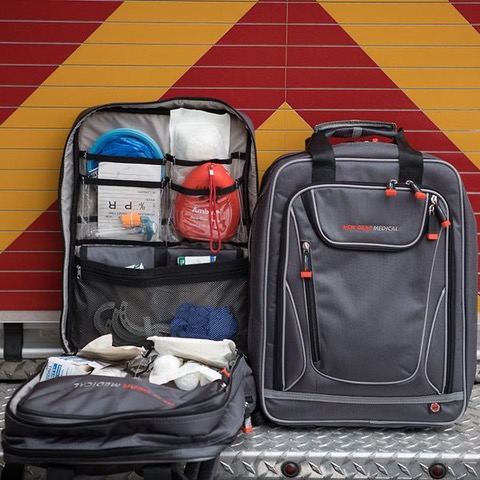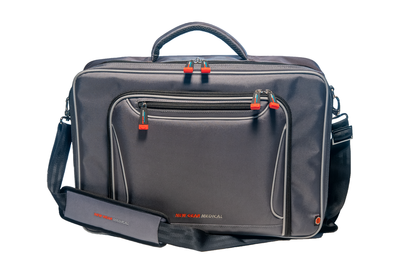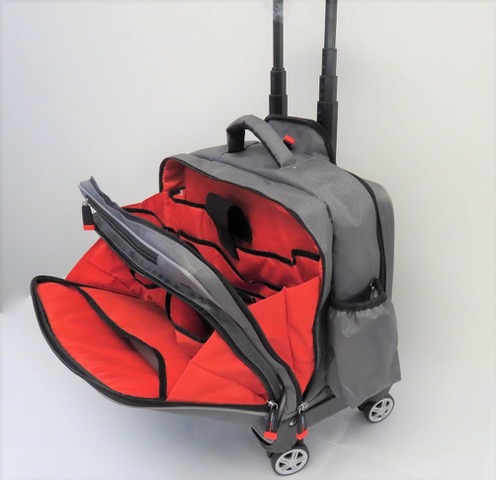It’s hard to find a shop selling buggy whips…or typewriters. Can you even buy a new pay telephone? Changing times, evolving trends and technology have made many a product and once thriving industries obsolete. If you’re not paying attention and looking ahead, that book of success you’re writing will end with Chapter 11.
Back in 2016, Ed Holland, President of
New Gear Brands began to get a bad feeling about the company’s core business. New Gear then specialized in smartly designed camera bags – must haves to haul around the cameras, lenses, filters, lights and film the pros used in their trade – and simple gear bags for photo hobbyists as well. It wasn’t that competitors were making better bags at a lower cost. It was the fact that cell phones and tablets were coming equipped with simple to use cameras that took great photos that could be shared, enhanced, emailed or e-filed instantly. Suddenly there was a reduced need for filters and lights and film that needed to be developed. Ergo, a diminishing demand for Camera Bags.
Come to think of it, when was the last time you saw a Photomat?
New Division
Rather than panic, Holland told the owners of the privately held company, it was time to ad lib. After a lot of give and take, it was decided to stick with the business model, developing special equipment for a specific industry, but shift design, and manufacturing to another industry.
“We decided to launch a new division,
New Gear Medical,” Holland explained. “We saw years before Covid hit that there was a need for better medical equipment bags. We noticed a trend to release patients from hospitals much faster, and often many of the discharged would need home visits from nurses. We surfed medical and hospital websites, talked to nurses, other medical professionals, even first responders and we found there really weren’t any good bags out there. They’d buy one, and because their equipment was heavy, the bag would rip in three months. Plus, there were no bags that offered any
antimicrobial protection.”
That, Holland noted, was a major problem. Nurses and therapists would drag those equipment bags on up to ten home visits a day. Some homes, as any nurse will tell you, are clean and tidy while others, not so much. Whatever the bags picked up were going to wind up back at the medical office or at the medical professional’s own home – not good – this being the precedent even before the Pandemic hit.
“We decided, look, we’re bag professionals,” Ed Holland recalled. “Bags are all we do, we can fix this.”
Antimicrobial Properties
But how? The accepted technology was to use the germ fighting properties of silver in a solution to treat the bags. But silver can be toxic, and the price was escalating.
After extensive research, they decided to coat the bags with a versatile natural sugar called
chitosan.
Derived from the shells of crabs and lobster, chitosan has been used for a variety of medical applications. It can stem bleeding, and has long been used in bandages because it has a natural antimicrobial property. Unlike silver, it is actually edible, and is even sold over the counter as a supplement to control hypertension and lower cholesterol.
Ok, so the bags were more or less germ resistant; but what about that other problem, durability?
It may be an industry problem, but Holland decided it was not going to be a New Gear Medical problem.




No comments